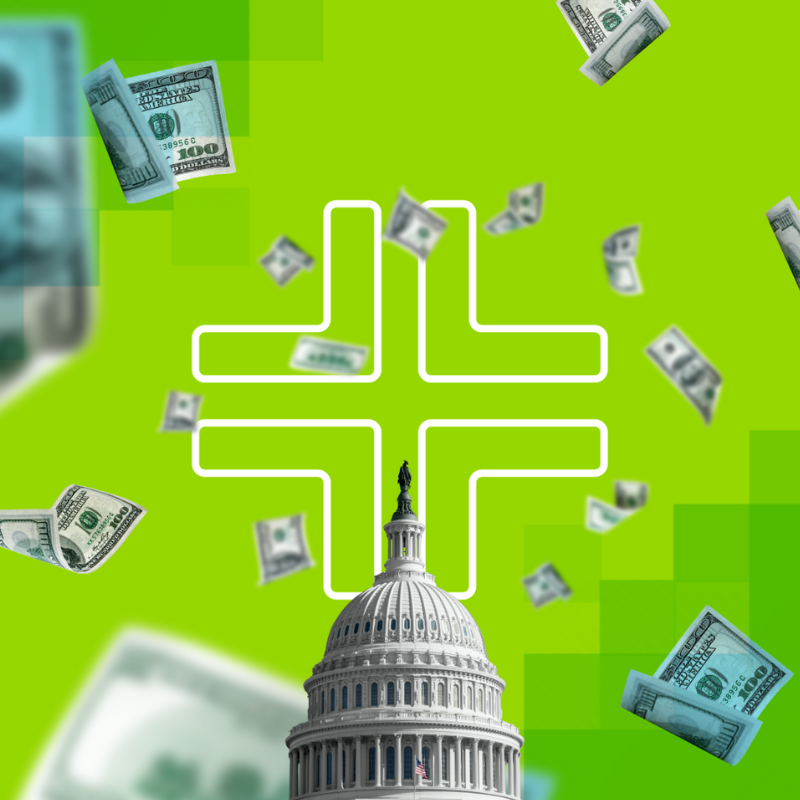Latest Update: As of September 3, 2025, the Treasury Department released its preliminary listing of jobs that qualify under the “No Tax On Tips” Provision of the One Big Beautiful Bill Act. Click here to learn more.
Update: As of August 7, 2025, the IRS announced that there will be no changes with respect to certain information returns (such as W-2, 1099s, 941) or withholding tables for the 2025 tax year under the new One Big Beautiful Bill Act (OBBBA). The IRS is hoping to avoid any major disruptions for the tax season. Employers and payroll administrators should begin tracking qualified tips and overtime pay immediately and expect upcoming guidance for the 2026 tax year. Employees should consider this impact as it pertains to any potential benefits they may receive regarding the no tax on tips or overtime rules under the OBBBA.
Withum will continue to monitor these changes and provide updates as they become available.
The One Big Beautiful Bill Act, commonly referred to as the OBBBA or OB3, includes new provisions on tips and overtime. Since it was signed on July 4, 2025, many are still working through the initial guidance and trying to plan for the unknown regarding this new legislation. Here are some updates and additional commentary based on the OBBBA’s provisions.
Withholding On Tips and Overtime
As of the writing of this updated article, the IRS has made no changes to withholding for individuals. Individuals who believe they are subject to the no tax provisions on tips and/or overtime may be tempted to adjust withholding. Experts and businesses with tips and overtime cannot yet advise employees on this matter. The IRS hasn’t updated withholding tables, which would suggest that if an employee doesn’t adjust withholdings, the withholding taken out throughout the year may be higher than what was needed and could either result in a larger refund or less tax due, depending on the circumstances. Without guidance, it’s still too early to say.
Overtime Pay
Questions are being asked about how to maximize this potential benefit. To reiterate, the first hurdle to clear is that any wages paid to employees must meet the rules and provisions of Section 7 of the Fair Labor Standards Act.
If an employee or employer is unclear on this, Human Resources and their employment lawyers should be consulted. There may be opportunities, assuming the above rules are first met, to update business practices in order to try to maximize employees’ opportunities with this provision. However, it is advisable that this first start with a business’s employment lawyers to determine the applicability of the provisions in the OBBBA to federal law.
Tips
No Tax on Tips allows certain employees in industries, yet to be officially named by the U.S. Treasury Secretary, to have the potential to reduce their federal income tax liability on tipped wages. It’s believed most of the traditional industries and businesses that have tipped employees (restaurants and hospitality, for example) will be allowed, but the full list has yet to be released. The question will be which industries with tipped workers will feel hard done by if the Treasury Secretary does not name them.
The item to stress here is that tips paid in cash and not reported as W-2 wages do not allow employees to benefit from no tax on tips. Tips must be reported to the employer, and the employer must then report those tips as wages to the IRS. This may require a change in business practices if employees do not customarily report tips.
In addition to this, no tax on tips is a reduction of the federal income tax for the employee. There is still a requirement to withhold Medicare and Social Security tax. Employees’ federal taxes might be reduced, but not all taxes, just federal income taxes. The employers, if reporting the tips as taxable wages, will still benefit from the tip credit based on amounts it pays for social security and Medicare taxes. The OBBBA did expand the tip credit to include the beauty industry when related to the tip credit.
Get the Latest Tax and Legislative Developments
Withum’s National Tax Policy and Legislative Updates Resource Center is your go-to source for timely updates on tax law and legislative changes. Our team is closely monitoring sweeping tax reform changes, shifting tariffs and tax industry updates, delivering in-depth analysis and actionable insights.
Tax Planning, Cash Savings and Other Considerations
There are some businesses that pay a guaranteed portion of its employees’ wages while using tips to supplement those wages to ensure that employees’ compensation meets minimum wage rules. This is allowed by some states and the federal government, with some caveats and various rules required from an employment law perspective, to ensure that the minimum wage is being met.
One situation that might be considered from a business cash flow standpoint is whether to reduce the guaranteed portion of the wages paid by estimating the potential tax savings on employees’ tips. This could be fraught and considered a serious public relations issue. Additionally, tip fatigue is a relatively new phenomenon that has gained traction with consumers, although there are still questions as to its validity. However, there is a real sense that consumers will speak with their money by considering a reduction in tips, whether, rightly or wrongly, employees that they are tipping are getting the benefit. If that were the case, and tips do fall, businesses in this situation may be forced to pay more to ensure minimum wages are being met, so it’s possible this type of cash savings option is out of the question before even considering it.
One burning question around the new tip rules is which employee group(s) will be negatively impacted. One group that may be in this category is those who work for businesses with service charges. Over the past decade, there has been a real push by many businesses to reduce customer tipping and increase pay to individuals, but to do that, many businesses have included service charges. Some businesses also began charging mandatory tip amounts for large parties. Under these scenarios, these two items are not tips in terms of the definition of qualified tips rules. Businesses that pay “tips” from these two types of charges will not be allowed the benefits of the no tax on tip rules.
Qualified tips must be voluntary, among other things, and they cannot be at the discretion of the business. It’s expected that many businesses with these practices may change their practices if there is enough outcry from their employees. There is still a fair bit of guidance expected around the reporting requirements and withholding, so stay tuned.
Contact Us
For more information on this topic, please contact a member of Withum’s Business Tax Services Team.







